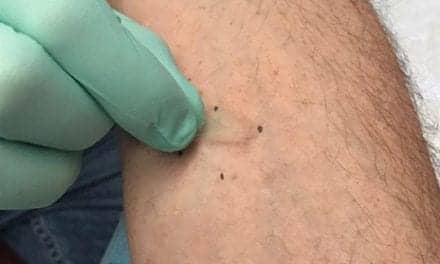It’s a misconception that eczema is something only children have to deal with. While the symptoms can sometimes fade somewhere between first grade and the early 20s, there are plenty of adults who have to deal with eczema as well. According to the National Eczema Association, approximately 31.6 million Americans have eczema. Ten percent of children have the disorder, and the same percentage of adults are dealing with eczema. “You can get it at age one, you can get it at age 81, or you can get it at age 101,” New Jersey dermatologist Jeanine Downie, M.D., tells SELF. “It can come up at any point in your life for no reason.”
The symptoms typically come and go in sporadic flare-ups (except in extremely severe cases where it can be more persistent). Doctors don’t know why some people have eczema and others don’t, but there seems to be a genetic component. “If you have a history of allergies or asthma, you’re predisposed genetically to get eczema,” says Downie. “If you have asthma, many years later you could get eczema. If your parents have eczema or allergies, you could pop up years later with eczema.” Once you have eczema, there is no cure. However, you can manage the patches with proper eczema treatment tactics.


